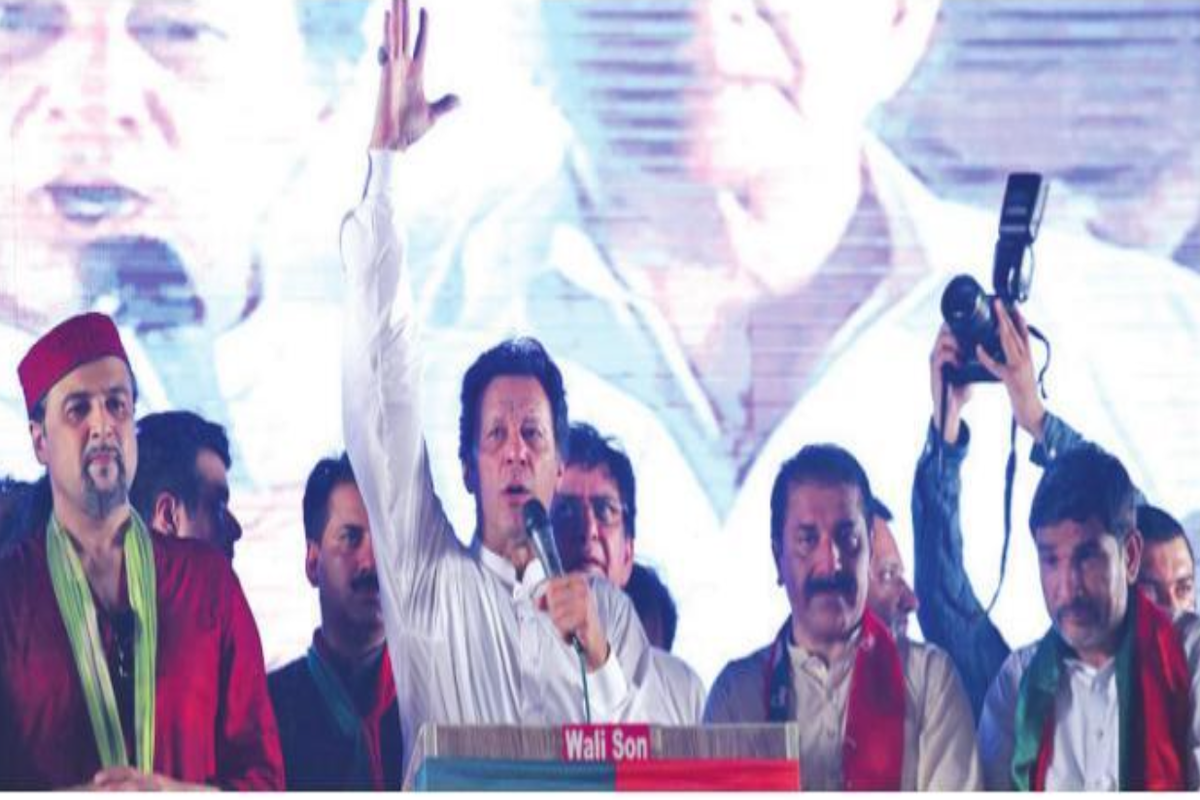Sana Mir and Usain Bolt named ambassadors of ICC T20 WC Qualifier 2024
Former Pakistan skipper Sana Mir and eight-time Olympic gold medallist Usain Bolt have been named as the ambassadors of women’s and men’s ICC T20 World Cup Qualifier 2024.
The fact is that Pakistan has never had democracy — the version envisaged by Mr Jinnah — since the country was born nearly 75 years ago.

Can the political melodrama being enacted in Pakistan today be called democracy? Those involved — all political leaders, the media, the anchors and others — believe this is democracy. The events that are portrayed 24/7 on TV, WhatsApp and Facebook are seen as giving the people a voice. How the ‘voice-giving process’ is being conducted is nobody’s business. All we old-timers know is that we cannot call a spade a spade.
The fact is that Pakistan has never had democracy — the version envisaged by Mr Jinnah — since the country was born nearly 75 years ago. Given the Quaid’s penchant for law and orderliness, he adopted the British-style parliamentary system which was given to us as the British parliament’s Act of 1935. It took our constituent assembly/assemblies nine years of virulent infighting to frame our own Basic Law which is supposed to be the social contract between the state and the people. This had not even been sanctified by an election when General Ayub Khan imposed his martial law in 1958. The first countrywide general elections were held in 1970 which ironically led to the break-up of the country after nine months of army action in East Pakistan and war with India. Can one term this period as democratic?
Yet our romance with democracy refused to die despite all the mishaps. We have yet to understand the nuances and deeper meaning of democracy and its basic requisites. People do not know, let alone understand, the aberrations that mark our constitutional history.
Advertisement
For instance, we have pretended that a serving army general, also the commander-in-chief (Ayub) being appointed the defence minister in a civilian cabinet is a norm in democracy. Similarly, no eyebrows were raised when a civilian politician (Bhutto) was appointed martial law administrator in December 1971.
It took centuries of social, economic and political evolution to pave the ground for democracy as we see it in action in the West today. It is this experience of hundreds of years of development that has made Western societies what they are today internally — largely tolerant, honest and displaying sportsmanship. Admittedly, there are exceptions, but then, there are also strong judicial mechanisms to address the ills that crop up. However, the evils of power manifest themselves in abundance in inter-state relations that are the legacy of imperialism. For that, the former colonial states had to strengthen themselves by being self-reliant and internally strong. We failed.
Western democracies have devices to counter the weaknesses in the political system. Thus John Strachey, a British Labour Party MP, suggested that a solid and highly educated middle class is the best countercheck to the malfunctioning of democracy. Other political scientists also agree that there can be no democracy without an educated electorate.
It is a pity that we lost centuries of experience when colonisation interrupted the natural process of development in South Asia. Worst of all, it left behind a mindset designed by Macaulay which rejects everything indigenous as being inferior. We are now left with the worst evils of both the East and the West.
Where do we go from here?
Mercifully, we still have many open-minded and honest people who are apolitical and have a sense of responsibility. They are not admirers of what are regarded as assets — the media, wealth, political power, fame and ostentation. The growing chaos gives them a chance to carry on their work quietly in the communities they serve. We have to go back to the community that our modern state has discarded. After all, humankind originally lived in communities that had their own system of management and social protection which took care of the people’s needs. Concurrent political development enabled an integrated approach to evolution.
We, on the other hand, thanks to being colonised, leapfrogged into the modern state without consolidating our communities’ welfare system. Our state has failed its citizens and, in view of the dismal state of our politics, it is unlikely that our state can succeed in bringing about a change now. Hence, people have to return to their communities when disaster strikes, be it unemployment, illness or death. They have no sense of belonging to the state either. Avarice and loss of dignity have corrupted our youth. Above all, social media gives a false sense of empowerment to the youth, many of whom are illiterate.
Seventy-five years of failure of governance in Pakistan due to our leaders’ hunger for power and inability to understand what colonialism did to us has destroyed our society. What we see today is the vacuum thus created being filled by those who have no understanding of his- tory or anthropology. They are not equipped to provide a holistic solution.
Advertisement